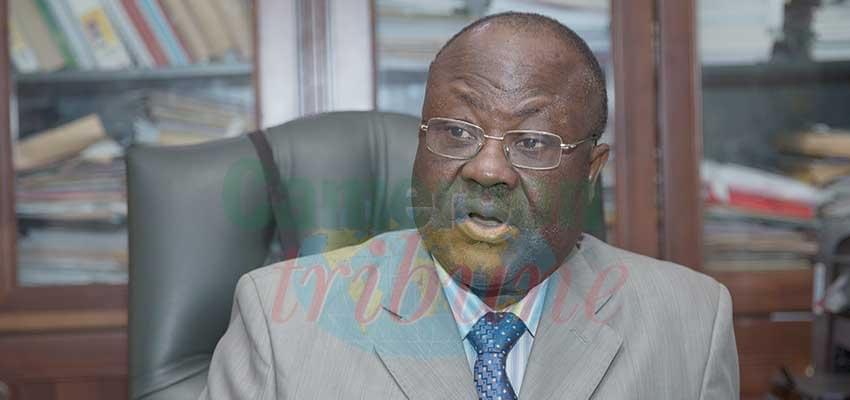
Moh Sylvester, Director General of Treasury, Monetary and Financial Cooperation.
What is the situation of the treasury at the moment?
The treasury can never be empty. We paid salaries on December 21, 2018. Contrary to what people write and claim that we will not be able to pay salaries in January, we have no issues with paying salaries. Our main concern right now is to make sure that small and medium-size enterprises are paid regularly. We are trying to catch up with the delays we had due to certain circumstances. What I can say is that we are continuing to pay service providers chronologically - first in, first out- though we may have emergencies from time to time.
Why do you put so much emphasis on payment of service providers?
There was a time it came to our notice that people were no longer interested in public tenders, we focused on making improvements and so now that we are paying regularly, they will only have to come running. The Treasury Department has always had as objective to pay service providers and those who have accounts with the state in 30 days. That has always been the major objective contrary to the 90 days which is indicated in CEMAC texts. We have been doing that for the past five to six years. In June 2017, we started having financial difficulties and that is why we signed the Financial and Economic Programme with the International Monetary Fund to enable us meet up with our objectives of paying people regularly.
Did you meet those objectives in 2018?
We did, though the results were not what we expected. One of the reasons we could not meet up with our objectives in 2018 is the security situation of the country which was not very good. There was quite a huge expenditure on security and the situation also contributed in reducing government revenue. This was greatly witnessed in the brewery industry and telecommunications sector. The tax contributions of these companies actually reduced. We also had a reduction in customs revenue due to those difficulties in the North West and South West regions. The second challenge we had was the presidential election. A lot of expenditure on it caused the treasury to shrink. We had operations of the Africa Cup of Nations (AFCON) which had to be paid with a lot of diligence since we were struggling to meet up with a deadline. Then, we also had the PLANUT programme which was also being executed alongside the normal execution of the budget.
We gave priority to salaries, not forgetting small and medium-size enterprises. I think those who were carrying out supplies with government realized that at one moment we were no longer following chronological payments. But from October 2018, most of them were called up by their bankers who informed them that their money was being paid. These payments were made, thanks to the budgetary support we got from our partners and with the FCFA 200 billion we raised from the financial market. The FCFA 200 billion helped us pay outstanding bills. By mid-December, payments for state suppliers were made chronologically. Even if we have difficulties, we do not have to give the impression that one needs to know someone in the treasury department in order to be paid or that there is disorder in payments. So even if we do not pay in 60 days, we make sure that payments are done chronologically. Most service providers can attest to that.
We also got some budgetary support of FCFA 98billion from the African Development Bank and about FCFA 105 billion from the European Union in mid-December and we will use it to pay service providers. Service providers should rest assured we shall continue with payments.
How much do you currently have in outstanding debts?
As of September 30, 2018 we had a debt of over FCFA 300 billion. This amount does not represent payments that have to be made immediately. Some are to be paid progressively. The debt to service providers is not more than 60 billion. The rest includes subventions, counterpart funds and funds that have to be transferred depending on need. Not all the debt is due. I cannot say we did not attend our objectives despite the difficulties.
What is your department going to contribute to ensure the success of the 2019 budget?
Our own contribution to the 2019 budget would be made through transactions in the financial market. This we plan to get FCFA 260 billion from the fin...
Cet article complet est réservé aux abonnés
Déjà abonné ? Identifiez-vous >
Accédez en illimité à Cameroon Tribune Digital à partir de 26250 FCFA
Je M'abonne1 minute suffit pour vous abonner à Cameroon Tribune Digital !
- Votre numéro spécial cameroon-tribune en version numérique
- Des encarts
- Des appels d'offres exclusives
- D'avant-première (accès 24h avant la publication)
- Des éditions consultables sur tous supports (smartphone, tablettes, PC)






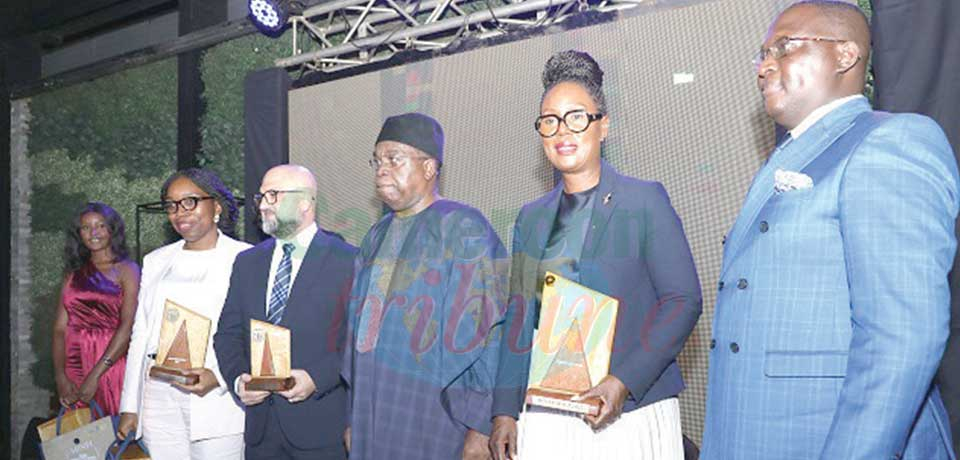
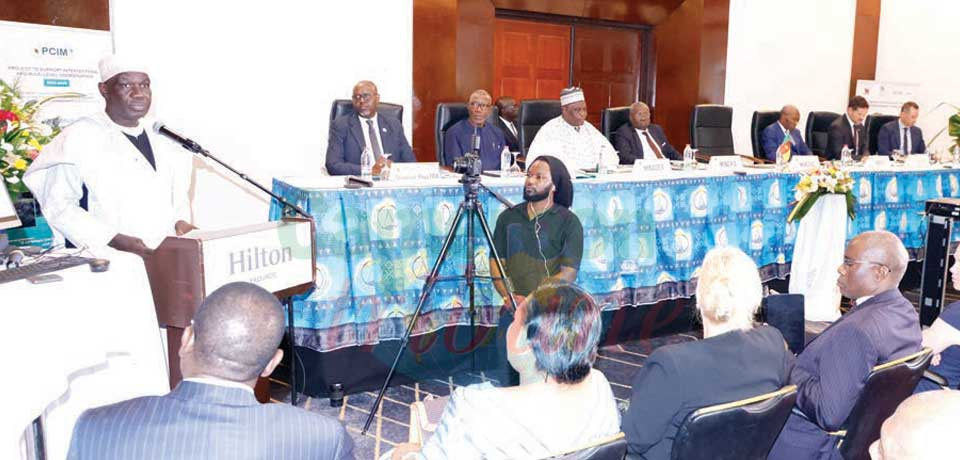
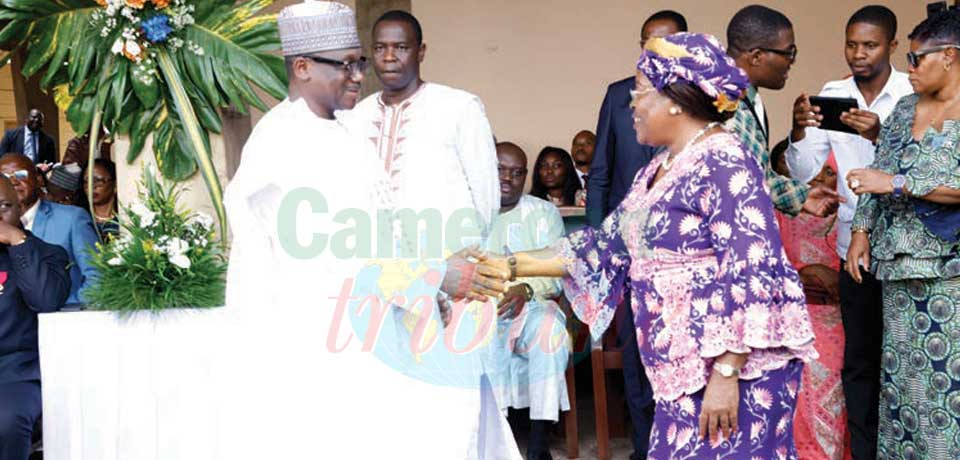
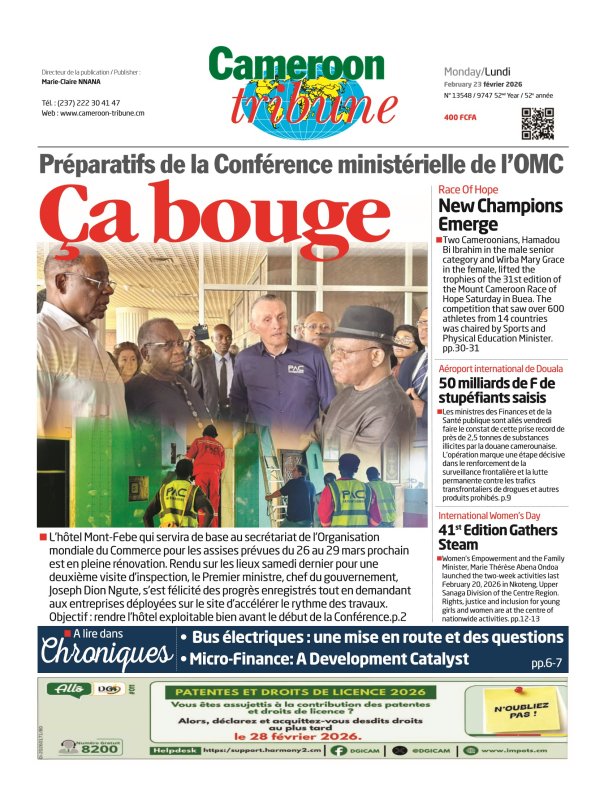




Commentaires